Top-Rated Debt Collection Agency in Pakistan
Your trusted debt collection agency in Pakistan ensures swift recovery with zero upfront fees. Delve into our guide to grasp local debt collection practices comprehensively.






The ultimate guide on debt collection in Pakistan
Why you can trust this guide
At Debitura, we uphold the highest standards of impartiality and precision to bring you comprehensive guides on international debt collection. Our editorial team boasts over a decade of specialized experience in this domain.
Questions or feedback? Email us at contact@debitura.com — we update this guide based on your input.
Debitura By the Numbers:
- 10+ years focused on international debt collection
- 100+ local attorneys in our partner network
- $100M+ recovered for clients in the last 18 months
- 4.9/5 average rating from 621 reviews
Expert-led, locally validated
Written by Robin Tam (16 years in global B2B debt recovery). Every page is reviewed by top local attorneys to ensure legal accuracy and practical steps you can use.
Contributing local experts:
Last updated:
Dealing with debt collection in Pakistan? Let Debitura be your guide. Our local insight and international prowess marry to simplify the process. This comprehensive guide equips you for the complexities of effective debt recovery in Pakistan.
Principal Actors in Pakistan's Debt Recovery Landscape
Navigating the Pakistan debt recovery terrain demands a grasp of the key participants and their assigned roles. From debt collection agencies to lawyers, each performs a unique function in the synchronized pursuit of debt recovery, complying strictly with Pakistan's legal apparatus.
Role of Debt Collection Agencies in Pakistan
In Pakistan, debt collection agencies play a pivotal role in the composite debt recovery ecosystem, acting as intermediaries between creditors and debtors to amicably resolve outstanding debts. Tasked with the critical function of extrajudicial recovery, these agencies expertly navigate through negotiations and direct communication strategies such as phone calls, emails, and written notices in Urdu, ensuring engagement with the debtor in a culturally sensitive manner. Collection agencies operate under a framework regulated by the Fair Debt Collection Guidelines issued by the State Bank of Pakistan, ensuring the protection of consumer rights and prohibiting any form of harassment or unethical practices. Creditors typically engage these agencies before contemplating judicial intervention, essentially when direct recovery attempts have been insufficient. Despite their diligent efforts in facilitating debt repayment through amicable means, it's paramount to acknowledge that the scope of these agencies is restricted to non-legal measures. Legal proceedings, if necessary, require the involvement of specialized legal professionals or entities capable of navigating Pakistan's intricate legal system.
Lawyers in Pakistan
In the realm of debt recovery in Pakistan, the involvement of lawyers becomes critical, especially when the recovery process escalates to judicial proceedings. Lawyers in Pakistan are instrumental in navigating the complex legal system, ensuring that the creditor's claims are articulated and defended robustly in court. Their role typically kicks in after amicable debt recovery efforts have been exhausted and a formal legal route is deemed necessary. They are tasked with drafting and filing legal documents, presenting the case in court, and providing legal advice tailored to the specifics of the debt recovery case.
Their deep understanding of Pakistan's legal framework, coupled with specific knowledge related to debt recovery laws and guidelines, equips them to handle various tasks. These include but are not limited to initiating legal notices, navigating the litigation process, and representing creditors in hearings. Moreover, their involvement is vital for ensuring adherence to procedural requirements, thus avoiding any legal missteps that could be detrimental to the case. Engaging a lawyer is recommended when the debt amount is significant, or the case involves complex legal issues that require professional intervention.
The Role of Bailiffs in Pakistan
In Pakistan, bailiffs are key figures in the enforcement of judicial decisions, particularly in the realm of debt collection. They act on the authority of the court to carry out asset seizures, ensure evictions, and deliver legal documents to debtors who have failed to meet their obligations voluntarily. The convention dictates that before a bailiff can be involved, creditors must secure a court order demonstrating the debtor's non-compliance or inability to fulfill the debt repayment voluntarily.
One of the primary responsibilities of bailiffs in the Pakistani debt recovery process involves the removal of movable property from the debtor's possession. This means that bailiffs can take away objects and assets that can be sold off to settle the debt owed to the creditor. However, there are clear restrictions to maintain a sense of fairness and humanity; bailiffs are not allowed to seize items deemed essential for the debtor’s basic daily life or business operations. In situations where a debtor refuses to cooperate or does not present themselves for a mandated affidavit by the bailiff, the creditor may pursue an arrest warrant to compel compliance. This level of action underscores the gravity and authority vested in bailiffs within Pakistan's legal framework for debt recovery.
The process overseen by bailiffs is meticulously regulated to ensure an equitable approach to debt recovery, balancing the creditor's need for enforcement with the protection of debtor's rights. Before engaging a bailiff, it's critical for creditors to have a clear understanding of the legal prerequisites and the conditions that justify such enforcement actions.
Understanding Debt Collection Legalities in Pakistan
For effective debt recovery in Pakistan, a comprehensive grasp of its intricate legal structure is crucial. Adherence to these laws not only aids in efficient debt retrieval but also maintains fairness, thereby fostering trust and preserving business integrity.
The Regulatory Environment and Civil Court System in Pakistan
In Pakistan, the civil court system is structured to ensure the fair and equitable administration of justice, encompassing various levels of courts tailored to different legal needs.
- The Lower Courts: At the foundation of the civil judicial system are the Civil Courts, which handle initial civil disputes and small claims. These courts are presided over by Civil Judges and address cases with lower monetary values.
- The District Courts: Above the Civil Courts stand the District Courts, overseen by District & Sessions Judges. These courts have broader jurisdiction, dealing with more significant civil cases and appeals from the Lower Courts. District Courts also handle family and rent cases, showing the system's flexibility in addressing diverse civil matters.
- The High Courts: At the apex of the civil judiciary are the High Courts, one for each province. These courts primarily deal with appeals from the lower courts. They have the authority to interpret the constitutionality of legal issues and oversee civil, criminal, and constitutional law matters, reflecting their critical role in Pakistan’s judicial landscape.
In summary, Pakistan's civil court system is designed to facilitate access to justice through a tiered structure, ensuring that cases are handled efficiently and effectively at the appropriate level. This hierarchy enables a streamlined process for adjudicating civil disputes, from small claims to complex legal appeals, underscoring the system’s commitment to upholding the rule of law.
Key Legislation Impacting Debt Collection in Pakistan
Understanding the legal landscape of debt collection in Pakistan is imperative for international creditors. The country's legislation covers various aspects of debt recovery, from amicable resolution to judicial enforcement.
- Financial Institutions (Recovery of Finances) Ordinance, 2001: Provides a comprehensive legal framework for the recovery of finances by banking institutions, detailing the summary proceedings and enforcement actions.
- Fair Debt Collection Guidelines by the State Bank of Pakistan: Establishes minimum standards for debt collection practices, aimed at protecting consumers, and ensuring professionalism in the recovery process.
- The Small Claims and Minor Offences Courts Ordinance, 2001: Facilitates inexpensive and expeditious resolution of small claims, contributing to the debt collection landscape for smaller debts.
In summary, the legal framework surrounding debt collection in Pakistan encompasses a range of regulations and guidelines aimed at balancing creditor rights with debtor protection. Navigating these laws requires thorough understanding and often the assistance of experienced professionals, especially for international creditors engaging in debt recovery within the region.
Consumer Protection from Unfair Collection Practices in Pakistan
In Pakistan, consumer rights are safeguarded against undue debt collection practices, ensuring respectful and fair treatment during the recovery process.
- State Bank of Pakistan’s Fair Debt Collection Guidelines: These guidelines mandate banks and DFIs to adhere to minimum standards like advance notice before debt collection visits and prohibition against harassment.
- Data Protection: Collectors are required to protect customer information, ensuring privacy and security during the collection process.
- Written Notices: Debt collection agencies must provide written notice before any action, clarifying the debt and the creditor’s identity, fostering transparency.
- Right to Fair Treatment: Consumers have the right to be treated with respect, free from intimidation, harassment, or abuse by collectors.
- Legal Recourse: Violations of consumer rights by debt collectors can be challenged through legal channels, with complaints filed with relevant authorities.
These protections emphasize the importance of ethical practices and legal compliance in debt recovery efforts in Pakistan. Ensuring fair treatment and safeguarding consumer rights not only align with legal mandates but also foster trust and respect in financial transactions.
Amicable Debt Collection in Pakistan
In Pakistan, the pre-legal or amicable debt collection process offers a solution to resolve debts without resorting to the court system. It's a streamlined, less complex approach often managed by professional collection agencies. This segment breaks down the steps, strategies and crucial aspects of this procedure.
- Hierarchy and Structure: The judicial system consists of the Supreme Court, High Courts, and district courts.
- Fair Debt Collection Guidelines: Governed by the State Bank of Pakistan, ensuring collection practices are lawful.
- Statute of Limitations: A 3-year window from the due date to legally collect a debt in Pakistan.
- Consumer Protection: Protections against abusive collection tactics, ensuring fair and respectful treatment.
- Cost of Amicable Debt Recovery: Costs start at €185 and can vary based on case complexity.
- Timeline and Efficiency: Resolution expected within 3 to 6 months, depending on debtor responsiveness.
- Essential Documentation: Includes contracts, communication records, and acknowledgment of debt.
- When to Use Amicable Recovery: Preferred as the first step due to potential lower costs and quicker resolution.
- Fees and Interest Rates: Additional fees and interest, subject to regulations, must be transparently disclosed.
- Transition to Judicial Debt Recovery: A last resort when amicable attempts fail, keeping in mind legal costs and statutes.
Mastering Amicable Debt Collection in Pakistan: A Debitura Perspective
Debitura employs an amicable approach to debt recovery in Pakistan, focusing on empathetic communication and negotiation, rather than confrontation. We understand the importance of preserving the delicate balance between recovering debts and maintaining healthy business relationships. This method proves particularly effective in cases without legal disputes, sidestepping the expenses and complications linked to court processes.
Before considering legal avenues, we recommend exploring the potential of amicable debt collection for its cost-effectiveness and simplicity.
The Integral Role of Collection Agencies in Pakistan's Amicable Debt Recovery
In partnership with creditors, Debitura plays a crucial role in Pakistan's debt recovery landscape. We begin by accurately identifying the specifics of each debt and debtor, leading to informed communication strategies—be it subtle reminders or more formal notices. Our impartial position often results in a higher success rate, thanks to professional mediation that remains free from personal biases.
The Benefits of Pursuing Amicable Debt Resolution
Engaging in amicable collection brings multiple benefits. Creditors not only forego the high costs tied to legal proceedings but also safeguard valuable relationships through this respectful process. Debtors gain through more lenient repayment conditions, easing financial burdens and promoting positive associations with creditors. This method fosters an atmosphere of mutual respect, facilitating better compliance with financial commitments.
Recognizing When to Shift from Amicable to Legal Collections
While amicable efforts are advantageous, certain scenarios may necessitate legal action. Indicators of this transition include lack of communication, recurring broken promises, or attempts by the debtor to evade payment. Taking legal steps is an option weighed with caution, considering the associated time and financial implications. Legal avenues are generally explored after all amicable solutions have been exhausted.
Cost-Effective Amicable Debt Collection with Debitura in Pakistan
Choose Debitura for efficient and risk-free international debt collection in Pakistan. Our No-Success, No-Fee policy ensures you get value for your money. Enjoy free registration, and pay a success fee between 7.5% to 30% upon successful recovery. Discover more about our pricing structure.
Seamless Debt Recovery Procedure
Debitura streamlines the amicable debt recovery process in Pakistan, typically wrapping up within 2-3 months:
- Free Sign-Up: Register without upfront fees at our onboarding page.
- Submit Your Claim: Input your claim details, review the success fee, and initiate the recovery process.
- Progress Tracking: Watch the amicable collection unfold in real-time via your Debitura dashboard.
- Legal Action Consideration: In unresolved cases, we'll provide three attorney quotes for potential legal action, allowing you to make informed decisions on how to proceed.
With Debitura, navigating the amicable debt collection landscape in Pakistan is straightforward, keeping relationships intact while effectively recovering dues.
Understanding Legal Debt Collection in Pakistan
If peaceful recovery attempts for a claim fall short, it's time to consider judicial debt collection or legal debt collection. This path involves securing a court order to enforce the claim with the help of bailiffs. This introduction provides a thorough snapshot of Pakistan's specific judicial debt collection process.
- Hierarchical Court System: Pakistan's judiciary spans from the Supreme Court to District Courts and specialized tribunals.
- Legal Framework: Governed by the Fair Debt Collection Guidelines and the Financial Institutions Ordinance, 2001.
- Consumer Protection: Emphasizes fair treatment and prohibits unethical debt collection practices.
- Arbitration and ADR: Encouraged for cost-effective, expedient resolution outside traditional courts.
- Court Selection: Based on territorial jurisdiction and the value of the disputed amount.
- Statute of Limitations: A three-year period to act on debt recovery, extendable if the debtor acknowledges the debt.
- Enforcement of Judgments: Includes warrants of execution and attachment of earnings orders against debtor’s assets.
- Court Fees and Timeline: Costs and proceedings timeline vary, influenced by various factors such as case complexity.
- Overseas Judgments: Pakistani law supports enforcing foreign judgments under certain conditions.
- Small Claims Courts: Aim for swift, cost-effective resolution for claims of minor value.
Shifting from Amicable to Judicial Debt Collection in Pakistan
In Pakistan, the paradigm of debt collection oscillates between amicable and judicial processes. While the former relies on negotiation and mediation, judicial debt collection resorts to the legal system for resolution. The transition from amicable to judicial methods is often triggered by disputes over the debt's validity, refusal of payment, and the urgent need for debt enforcement. In such cases, legal counsel becomes indispensable, not just for representation but also for navigating the intricacies of Pakistan's legal framework concerning debt recovery.
The Importance of a Formal Judgment in Pakistan
In debt recovery, securing a formal judgment from a Pakistani court is pivotal. This court order acts as a legal vindication of the creditor's claim against a debtor, enabling the initiation of enforcement actions to recover the debt. Obtaining a court order begins with the filing of a lawsuit against the debtor, necessitating a profound understanding of the procedural legislations and submission of compelling evidence. The significance of a court judgment extends beyond mere debt enforcement; it’s a prerequisite for any coercive recovery actions and serves as a deterrent against frivolous defenses by the debtor.
Determining the Appropriate Court in Pakistan
Identifying the right judicial arena for a debt collection case in Pakistan involves a careful assessment of several parameters, including the size of the claim and the case’s complexity. The hierarchy of Pakistani courts – from subordinate judiciary to the superior courts – dictates that matters be directed to specific forums based on pecuniary and jurisdictional thresholds. For instance, smaller claims may be adjudicated in District Courts or the Small Claims Courts, while more substantial claims might necessitate engaging the High Courts. Furthermore, the Financial Institutions (Recovery of Finances) Ordinance, 2001, provides a streamlined process for banking recovery cases, establishing a protocol so tailored that it often prescribes the forum for specific types of financial disputes.
Small Claims Court in Pakistan
In Pakistan, the Small Claims and Minor Offences Courts Ordinance 2001 establishes a streamlined and cost-effective method for resolving small claims and minor offences, geared towards offering swift justice. These courts operate at the district/tehsil level, with civil judges-cum-judicial magistrates presiding over them. Designed to handle civil suits valued at one hundred thousand rupees or less, along with minor criminal offenses, these courts adopt a simplified procedure to expedite case processing. This involves encouraging out-of-court settlements and utilizing alternative dispute resolution methods to alleviate the legal burden. However, only two Small Cause Courts are currently operational in Pakistan, and the slow case disposal is often attributed to factors such as limited public awareness and the courts' broader civil/criminal jurisdiction. With the aim of increasing accessibility and efficiency, proposed reforms seek to make small claims courts more prevalent at the sub-divisional level, boosting their role in delivering quick and affordable justice for all.
Ordinary Proceedings in Pakistan
Ordinary proceedings in Pakistan provide a more comprehensive legal pathway for debt recovery, especially for claims exceeding the limitations of Small Claims Courts. Unlike small claims procedures which aim for expedited and simplified dispute resolution, ordinary proceedings allow for a more detailed examination of the case, offering advantages like thorough evidence review and a structured legal process. This method often results in more substantial recoveries for creditors, given the thorough judicial examination of each case.
Legal representation in ordinary proceedings is not only common but usually required due to the complexity and formalities involved. Lawyers skilled in debt recovery can navigate the complexities of the Financial Institutions (Recovery of Finances) Ordinance, 2001, and other relevant legislation, ensuring that the creditor’s rights are robustly defended in court. This contrasts with small claims procedures where the emphasis is on simplicity and self-representation is more common.
The laws and regulations governing ordinary proceedings, including the aforementioned Ordinance, outline precise steps for initiating claims, presenting evidence, and enforcing judgments. This legal structure provides a clear but intricate framework within which creditors must operate to recover debts, underlining the importance of professional legal advice and representation in these matters.
Enforcing Debts in Pakistan
Once you have a court-approved authority to collect debt in Pakistan, the next step is debt enforcement. This ensures your claim's realization through official bailiffs who oversee your debtor's asset appropriation. Discover how to expertly navigate this legal landscape in the following guide.
- Debt Enforcement in Pakistan: Involves pursuing payments owed through specialized agencies or legal proceedings in court.
- Role of Bailiffs in Pakistan: Bailiffs execute court orders, manage assets, and facilitate auction processes to recover debts, including both Court and Private or Certified Bailiffs.
- Alternative Dispute Resolution: Before legal action, mediation or arbitration is recommended to resolve disputes amicably.
- Statute of Limitations: The statute of limitations for debt claims in Pakistan is typically three years, with pre-trial settlements encouraged.
- Legal Framework: Governed by the Fair Debt Collection Guidelines issued by the State Bank of Pakistan, ensuring lawful and professional conduct during collection efforts.
- Execution Process Overview: May involve warrants of execution, attachment of earnings orders, and other methods based on the judgment.
- Debtor Consequences: Includes potential bankruptcy or winding-up petitions, leading to asset sale or company cessation to satisfy debts.
- Consumer Protection: Regulations are in place to protect consumers from abusive debt collection practices, upholding rights during the collection process.
- Asset Seizure: Legal requirements involve the Forfeiture of Property Rules, 2021, allowing for the freezing and forfeiture of assets linked to smuggling.
- Wage Garnishment: Under specific circumstances and court orders, a debtor’s salary may be withheld to repay outstanding debts.
Understanding Debt Enforcement Actions in Pakistan
In Pakistan, debt enforcement is marked by a legal framework structured to facilitate creditors in recovering debts through multiple levels of the judiciary. The superior and subordinate judiciary systems play pivotal roles in upholding the laws that govern debt recovery and enforcement. The process encompasses the pivotal participation of bailiffs or court-appointed enforcement agents who execute court orders to recover debt by identifying, seizing, and selling the debtor's assets.
Legal Framework and Debt Recovery Procedures
The legal groundwork for debt enforcement in Pakistan integrates the Fair Debt Collection Guidelines, laid down by the State Bank of Pakistan, with the judicial procedures defined under the civil court system. This encapsulation ensures that creditor rights are balanced with consumer protection norms, fundamentally pivoting on principles of justice and equity. Debt recovery may begin with amicable resolutions like arbitration or mediation but can escalate to judicial processes, led by the courts, based on the complexity and resistance of the case.
The Crucial Role and Guidelines for Bailiffs
Bailiffs, operating under strict regulatory guidelines, embody the physical enforcement of debt recovery orders in Pakistan. Their responsibilities include executing warrants of execution, attachments of earnings orders, third-party debt orders among other means designed to ensure creditor satisfaction while also safeguarding the debtor’s basic living needs. These officers, a blend of both court and privately certified bailiffs, ensure that actions are taken within the confines of legal and ethical standards, maintaining a balance between recovery and consumer protection.
Preparation and Execution of Debt Enforcement
Prior to embarking on debt enforcement, creditors are advised to critically assess their legal standing by confirming the enforceability of their titles, issued from either court judgments or formal agreements. This is followed by an exhaustive strategy comprising the issuance of final warning letters aimed at voluntary settlement before moving to direct legal action. This step is crucial not just for its potential to expedite the recovery process but also for ensuring due process is adhered to, respecting the debtor's right to either contest or confirm the debt’s validity.
Enforced Recovery and Considerations
Enforcement, particularly through legal action, must regard key considerations including the cost implications like court fees, bailiff charges, and other related expenses. The dynamic nature of each case, mindful of the debtor’s capacity to fulfill obligations, heavily influences the course of recovery. This multifaceted process, though streamlined by regulations, still demands thorough examination of the debtor's financial health, legal status, and asset value to script a successful enforcement narrative.
As the backbone of the legal framework, specialized agencies, legal professionals, and the judiciary unite to navigate the complex terrain of debt enforcement in Pakistan. The robust system emphasizes not just recovery, but ensures that proceedings are grounded in fairness, respect, and due diligence.
Understanding the Role of Insolvency Proceedings in Pakistan's Debt Recovery
Insolvency is a scenario wherein a debtor finds themselves unable to fulfil their financial commitments when they come due. Frequently, conventional enforcement methods, including asset confiscation under court directive, cannot be implemented due to the lack of retrievable assets. In these circumstances, the significance of bankruptcy proceedings comes into play. These legal mechanisms target an organized sell-off of the debtor's assets, serving as a last-ditch effort to recover some payment for outstanding dues.
- Legal Framework: Governed by the Insolvency Act of 1909 and the Companies Act of 2017 in Pakistan.
- Filing Requirements: Involves submitting a petition with debt details and proving inability to repay.
- Priority Rules: Secured creditors usually have precedence over unsecured creditors in asset distribution.
- Recovery Likelihood: Dependent on debtor's assets, debt type, and bankruptcy proceedings outcome.
- Associated Costs: May include court fees, legal fees, and administrative expenses, varying by case complexity.
- Duration: Can range from several months to years, based on case intricacies and court schedules.
- Outcome for Creditors: Possibility of partial debt recovery, subject to available assets and court-determined priority.
- Filing Process: Debtors or creditors can initiate, involving asset disclosure and court proceedings.
- Post-Bankruptcy Scenarios: Options for unsatisfied creditors may lead to appeals or further legal actions.
Insolvency and Bankruptcy Proceedings: A Deep Dive into Pakistan's Legal Framework
In Pakistan, navigating the complexities of insolvency and bankruptcy requires a thorough understanding of the legislative ecosystem and procedural intricacies. Governed by the Insolvency Act of 1909 and the Companies Act of 2017, the legal proceedings aim to either rehabilitate the debtor's financial standing or equitably liquidate assets to satisfy creditor claims. Both debtors and creditors are empowered to initiate insolvency proceedings, given the debtor's demonstrable inability to meet financial commitments routinely. This initiation hinges on stringent legal requirements, including the necessity to provide comprehensive details of the indebtedness and evidence of insolvency.
Securing Creditors' Interests and Navigating Claim Hierarchy
The realm of insolvency in Pakistan categorizes creditor claims with meticulous attention to detail, laying the foundation for a clearly defined priority ladder. From secured claims, bolstered by tangible assurances, to unsecured ones lacking collateral backup, understanding these categorizations is pivotal for creditors aiming at maximizing recovery. Creditors must not only lodge their claims within the designated timelines but are also encouraged to actively participate in proceedings. Such proactive engagement, whether via creditors' committees or through reorganization plan negotiations, can significantly improve the prospects of recovery.
Deciphering Costs and Temporal Aspects of Insolvency Proceedings
Embarking on insolvency proceedings incurs an array of costs and spans varying timelines, deeply influenced by the debtor's financial intricacies, the complexity of creditor claims, and unforeseeable legal disputes. These expenses, enveloping court, administrative, and legal representation fees, are ordinarily settled from the debtor's estate prior to disbursing any funds to creditors. Consequently, stakeholders should brace for lengthy proceedings, frequently extending over protracted durations, which could delay the realization of debt recovery goals. In opting for insolvency as a debt recovery route, a comprehensive grasp of these elements is indispensable for any creditor navigating the Pakistani legal landscape.
Find a Local Debt Collection Lawyer
Need court-ready representation? Share your case once and receive up to three proposals from vetted litigation attorneys—free, fast, and with no commitment.
- Verified specialists
- Quotes in 24 h, no hidden fees
- Fair, pre-negotiated rates

GNS Law Associates is a premier law firm in Karachi offering effective debt collection services in Pakistan, positioned as the go-to partner for debt recovery since 2013, with accolades like the "Best Real Estate Disputes & Procurement Practice 2024" and membership in the Sindh Bar Council.

ASC & Co. is a premier law firm in Lahore offering effective Debt Collection services in Pakistan, positioning itself as the go-to partner for debt recovery since 2013, with a commitment to quality and recognized by multiple awards and memberships.

JA LEGAL is a premier law firm in Lahore offering effective Debt Collection services in Pakistan, positioning itself as the go-to partner for debt recovery since 2020, with a reputation bolstered by industry accolades and esteemed memberships.
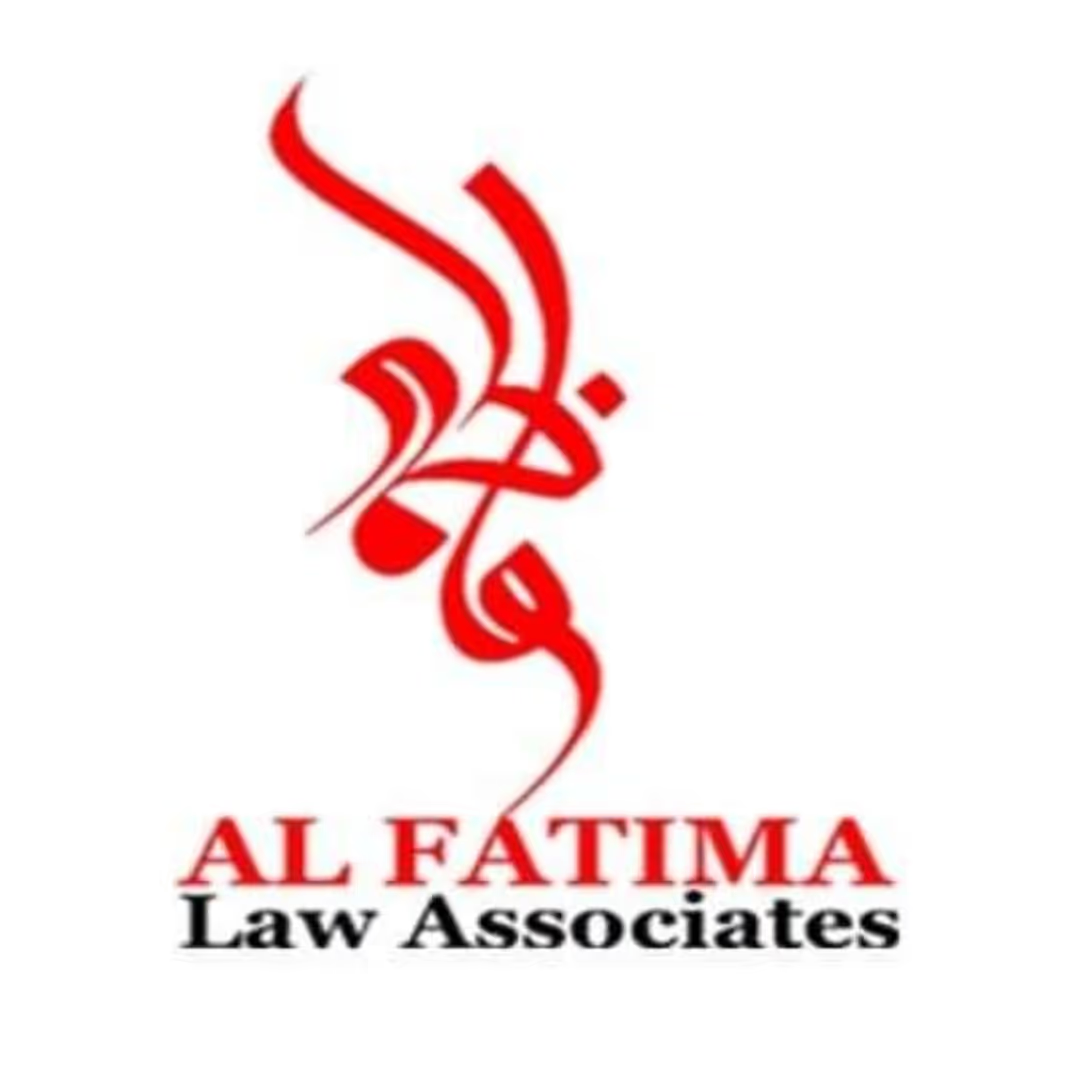
Al Fatima Law Associates is a premier law firm in Gujrat offering effective Debt Collection services in Pakistan, positioning the firm as the go-to partner for debt recovery since 2016, with accolades as a top-rated agency and memberships in leading bar councils.
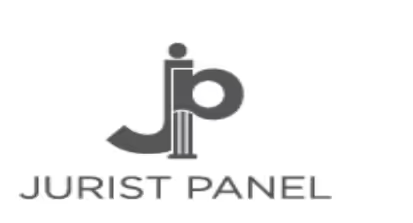
Jurist Panel is a premier law firm in Lahore offering effective Debt Collection services in Pakistan, positioning itself as the go-to partner for debt recovery with a presence in the UK, founded in 2014, and recognized with multiple awards and memberships.

Hamid A. Memon Law Associates is a premier law firm in Karachi offering effective Debt Collection services in Pakistan, positioning itself as the go-to partner for debt recovery with a foundation in 2020, a competitive hourly rate, and international service reach including the UAE, UK, and USA.
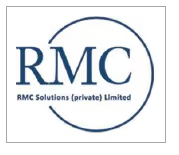
RMC Solutions Pvt Ltd is a premier debt recovery agency in Shah Faisal Colony offering effective Debt Collection services in Pakistan, positioning the firm as a trusted partner since 2023, with global reach and membership in the Pakistan Banks Association.
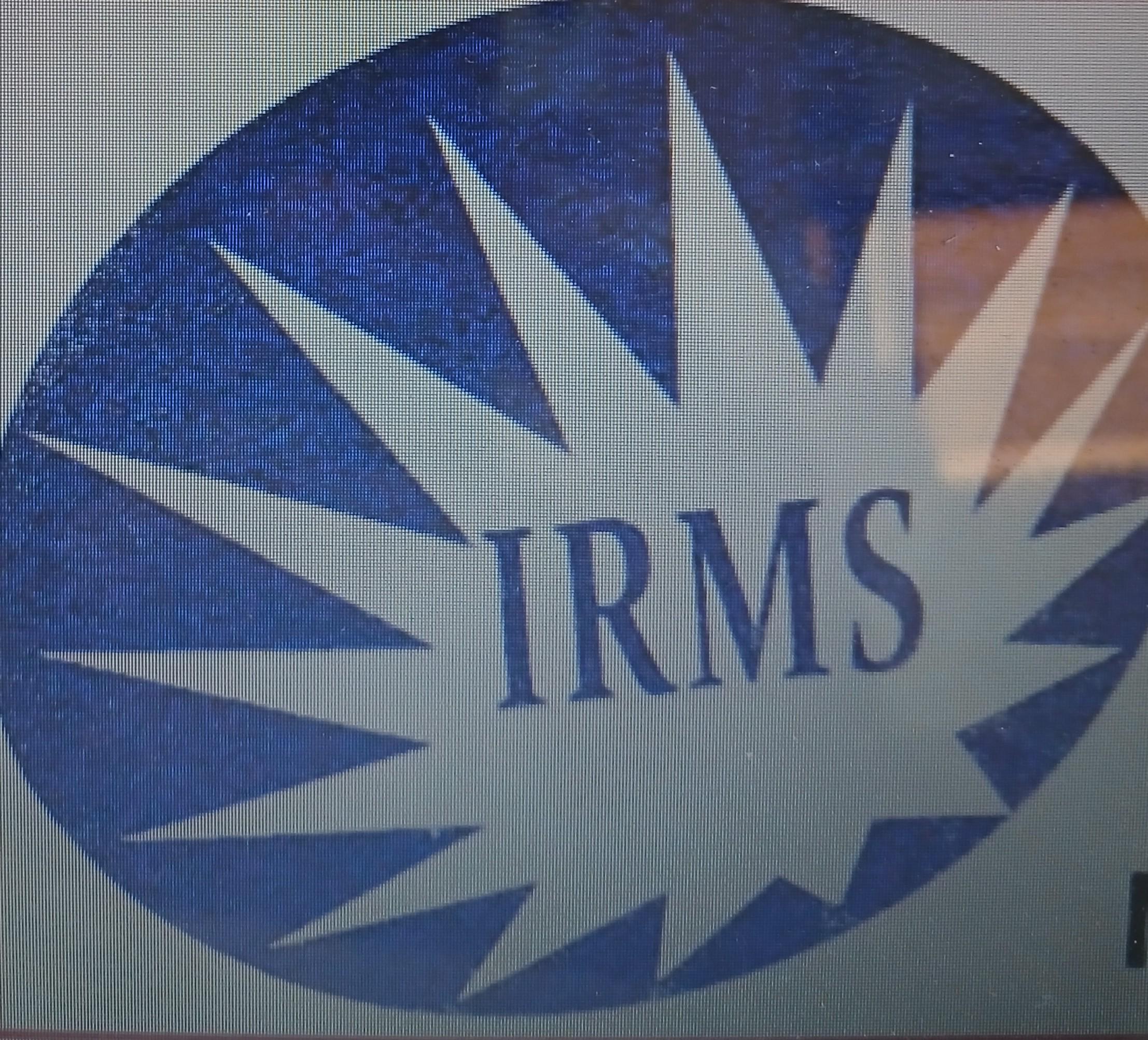
International Receivable Management Services is a premier debt recovery agency in Karachi offering effective debt collection services in Pakistan, established in 2008, operating on a no-collection, no-commission basis, and serving Europe, America, and Asia with award-winning expertise.
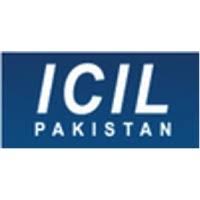
International Credit Information Limited is a premier debt recovery agency in Karachi offering effective Debt Collection services in Pakistan, established in 1998, serving 100 countries, and an ACA International member, ensuring reliable and comprehensive solutions for businesses.





.svg)

.webp)
.png)

.png)
.svg)












.svg)

